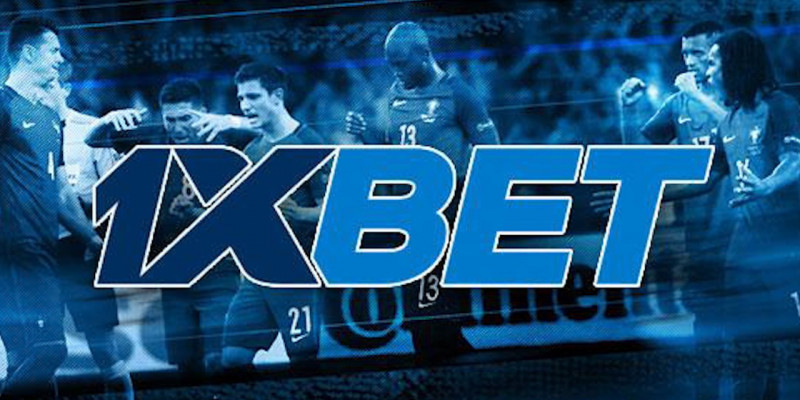
sports betting 1xbet apk Whether you are just beginning or looking to sharpen your edge, sports betting combines discipline, research, and psychology. Successful bettors approach the market like investors: they seek value, manage risk, and adapt to changing information. This article outlines practical strategies, analytical frameworks, and responsible-play principles to help you make better decisions and enjoy the sport responsibly.
Understanding the markets is the foundation of sustainable sports betting. Markets range from moneylines and point spreads to totals, futures, and prop bets. Each market carries its own characteristics: moneylines reward picking winners, spreads balance mismatches through handicaps, and totals focus on game pace and scoring tendencies. Prop bets can offer value if you possess specialized knowledge—like a player’s injury status, role changes, or matchup specifics—but they often come with wider margins and greater variance.
Value is the single most important concept. A value bet occurs when the probability you assign to an outcome is higher than the implied probability derived from the bookmaker’s odds. If a bookmaker offers odds implying a 40% chance, but your objective assessment suggests a 50% chance, that is value. Developing accurate probabilities requires data, contextual knowledge, and awareness of market movements. Use reliable statistics, watch team news, and consider situational factors such as travel schedules, rest days, coaching changes, and motivation.
Bankroll management protects you from variance and ensures longevity. Decide in advance how much of your total gambling funds (your bankroll) you are willing to risk. A common approach is the fixed-percentage model: stake a small percentage of your bankroll on each bet—often between 1% and 5%, depending on confidence and variance. This keeps losing streaks manageable and allows you to capitalize on winning streaks without excessive risk. Avoid the temptation to chase losses with larger stakes; emotional decisions are a primary cause of catastrophic bankroll depletion.

Record-keeping is an underrated habit. Track every wager: date, sport, market, selection, odds, stake, result, and the rationale behind the bet. Periodically review your history to identify strengths and weaknesses—certain markets, teams, or bet sizes may perform better for you. Honest, granular records also help you determine whether your edge is real or an artifact of variance. Backtesting strategies against historical data can validate systems before real money is deployed.
Analytical tools and models provide a measurable advantage. Simple predictive models—regression, Poisson for goals/scoring, Elo ratings, or more complex machine learning approaches—can yield probability estimates that differ from bookmakers’ lines. Even modest predictive improvements, when applied consistently, can be profitable over time. However, remember that models require clean data, careful feature selection, and constant recalibration. Markets evolve as teams change and new information becomes available; models must too.
Live betting (in-play) opens opportunities to exploit shifts in match dynamics, but it demands speed and discipline. In-play markets react to events: injuries, weather, substitutions, or momentum swings. Pre-match models can provide a baseline expectation, and deviations during the event may reveal value. Yet live markets also punish impulsivity; bookmakers often widen spreads quickly and restrict accounts that consistently exploit inefficiencies. Use live betting selectively and focus on scenarios where your information or reaction time gives you a clear edge.
Line shopping is a practical and immediate way to improve your returns. Odds differ between bookmakers, and even small discrepancies translate into meaningful long-term differences. Use multiple accounts and compare lines before placing a bet. Bet sizing should reflect not just your confidence but also the comparative value across platforms—if one shop offers better odds, prioritize it. Also watch for market liquidity: in niche markets or smaller competitions, odds can move rapidly and be more vulnerable to manipulation.
Understanding bookmaker margins and closing lines is crucial. Bookmakers embed a margin (vig) into odds to guarantee profit over the long run. Your aim is to beat the closing line—the final odds before an event starts. A persistent ability to beat closing lines suggests predictive skill and long-term edge. Be wary of markets where odds are opaque or where soft books obscure true prices. Professional bettors often use exchanges or low-margin bookmakers to reduce costs.

Psychology matters as much as statistics. Cognitive biases—recency bias, confirmation bias, and overconfidence—can distort judgment. Sports fandom can also undermine objectivity; betting on your favorite team often leads to poor staking decisions. Develop a disciplined routine: predefine your stake sizes, set stop-loss and profit-target rules, and avoid emotional betting. Use automation when possible to enforce rules and reduce impulsive behavior.
Responsible gambling should be central to any betting activity. Set strict limits on time and money, and treat betting as entertainment rather than income unless you have a verified, sustainable edge and appropriate risk controls. Know the signs of problematic behavior—chasing losses, lying about losses, or neglecting obligations—and seek help if needed. Many jurisdictions provide resources and self-exclusion tools to support healthy habits.
Legal and regulatory awareness is often overlooked. Laws around sports betting vary widely by country and region. Before placing bets, confirm that you are using licensed operators and understand tax implications. Use reputable platforms that comply with local regulations to protect your funds and personal data. Be cautious with offshore sites that lack transparent licensing; immediate convenience can cost you in security and recourse.
Finally, continuous learning is the hallmark of long-term bettors. Sports evolve: rule changes, analytics adoption, and strategic trends shift the edge. Read broadly—analytics blogs, betting forums, and academic research—and test new ideas conservatively. Collaboration with thoughtful peers can surface overlooked angles, but maintain skepticism and verify claims with data. Betting success is rarely about finding a single secret; it’s the result of disciplined process, incremental improvements, and responsible risk management.
In summary, sports betting combines knowledge of markets, disciplined bankroll management, statistical modeling, and psychological self-control. Seek value, protect your capital, and prioritize sustainability over short-term thrills. When approached thoughtfully, betting can deepen your engagement with sport while remaining a controlled and enjoyable hobby.

0 comentarios